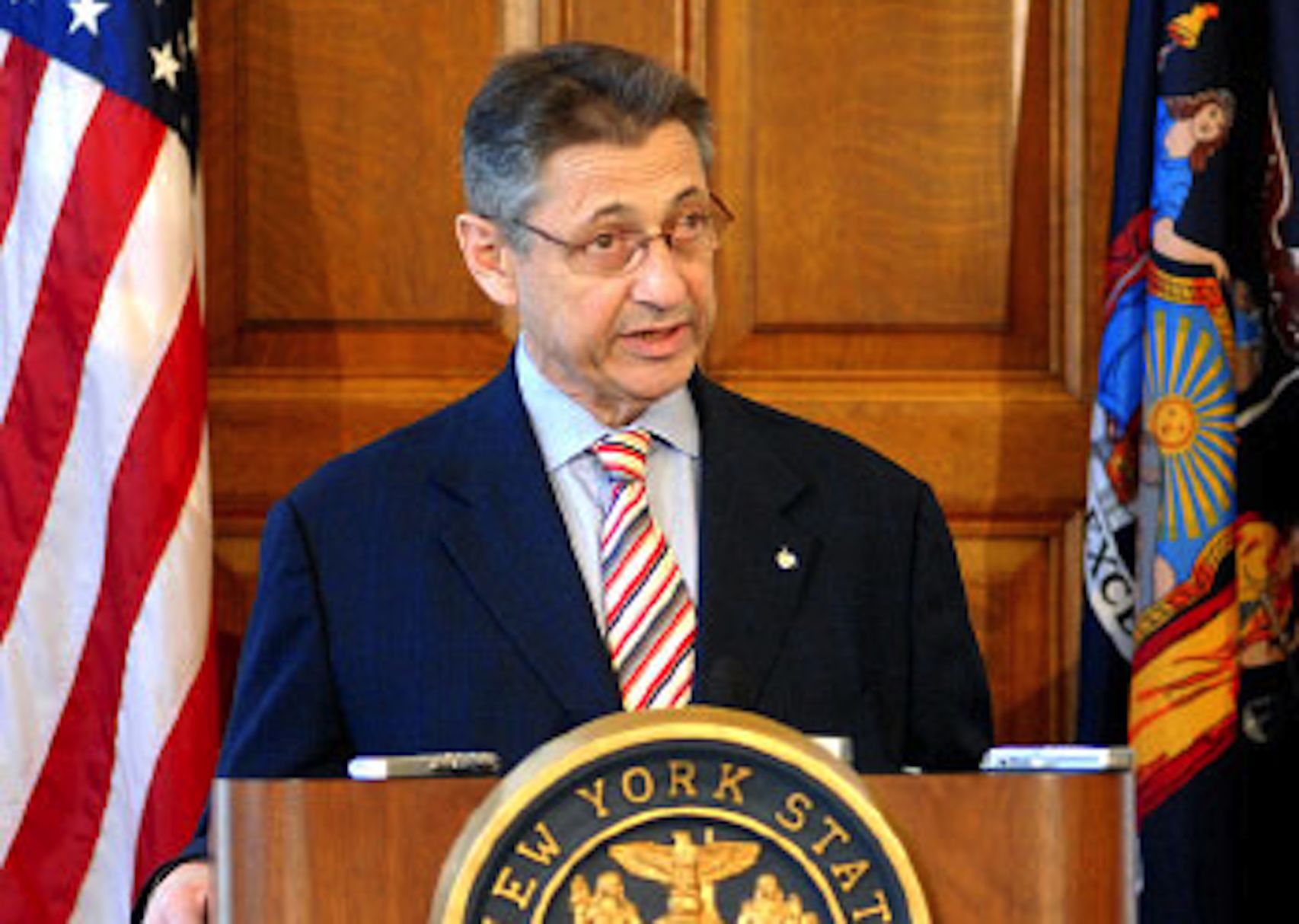A jury convicted former state Assembly Speaker Sheldon Silver Monday on federal corruption charges, marking an end to the first of a pair of such trials against the two lawmakers who held immense power at the highest level of state government.
Silver, 71, was found guilty on all seven counts of bribery, extortion, money laundering and honest services fraud for a pair of schemes that secured him more than $1 million in kickbacks disguised as legal referral fees.
“Today, Sheldon Silver got justice, and at long last, so did the people of New York,” Preet Bharara, the U.S. attorney for the Southern District of New York, who brought the case against Silver, said in a statement Monday.
The conviction came on the third day of jury deliberations, four weeks to the day after the start of Silver’s trial in a downtown Manhattan federal court.
He faces up to 130 years in prison but is expected to receive a sentence closer to 20 years, the New York Daily News reported.
By law, the conviction forces Silver out of his Assembly seat, to which he was first elected in 1973. He had served as its speaker, a position that gave him sway over many major legislative decisions, from 1994 until his arrest in January.
Silver, a Democrat, was convicted as the federal corruption trial against former state Senate Majority Leader Dean Skelos (R-Rockville Centre) — who held power similar to Silver’s — and his son, Adam, continues this week.
In a statement, Assembly ethics committee Chair Charles Lavine (D-Glen Cove) called Silver’s actions “a damning abuse of the public’s trust.”
“His conduct has brought great shame to the people of the State of New York and to the honest and hardworking public servants who struggle to make life better for all New Yorkers,” Lavine said.
Over the course of Silver’s trial, prosecutors presented evidence that Silver referred clients from a prominent cancer doctor and two luxury real estate developers to Manhattan law firms where he was of counsel.
The referrals essentially constituted quid-pro-quo arrangements, prosecutors said, in which he did legislative favors for the doctor and the developer effectively in exchange for money from part of fee-sharing arrangements with the firms.
Silver, who formerly represented a downtown Manhattan district, maintained to a state legislative ethics board and the press that the money came from legal referral fees.
But the doctor, former Columbia University asbestos-disease researcher Dr. Robert Taub, and representatives for the developers, New Hyde Park-based Glenwood Management and Manhattan’s Witkoff Group, said they feared alienating Silver because of the political power he held in the Assembly.
Silver’s defense lawyers, Joel Cohen and Steven Molo, argued Silver had committed no crime and that Taub and the developers were seeking “good will,” Newsday reported, part of the business of Albany politics.
With Glenwood, whose headquarters are at 1200 Union Turnpike in New Hyde Park, figuring largely in both trials, the Silver case wound its way through Nassau County.
At Silver’s suggestion, the firm gave several property tax refund cases to the Manhattan law firm, Goldberg & Iryami, whose fee-sharing agreement with Silver netted the former Assemblyman about $700,000.
Glenwood’s lobbyists regularly talked with Silver about favoring tax breaks and rent-control laws that Glenwood and other developers rely on.
The firm, its subsidiaries and its 101-year-old principal Leonard Litwin also gave more than $200,000 combined to Silver’s campaigns and the Democratic Assembly Campaign Committee.
Lobbyist Richard Runes testified that Glenwood executives kept referring their tax cases to the Goldberg firm despite legal and political red flags because they didn’t want to “alienate” Silver or “make an enemy out of” him.
Glenwood lobbyist Richard Runes testified that the firm’s executives, including Litwin, did not want to “alienate” or “make an enemy out of” Silver.



